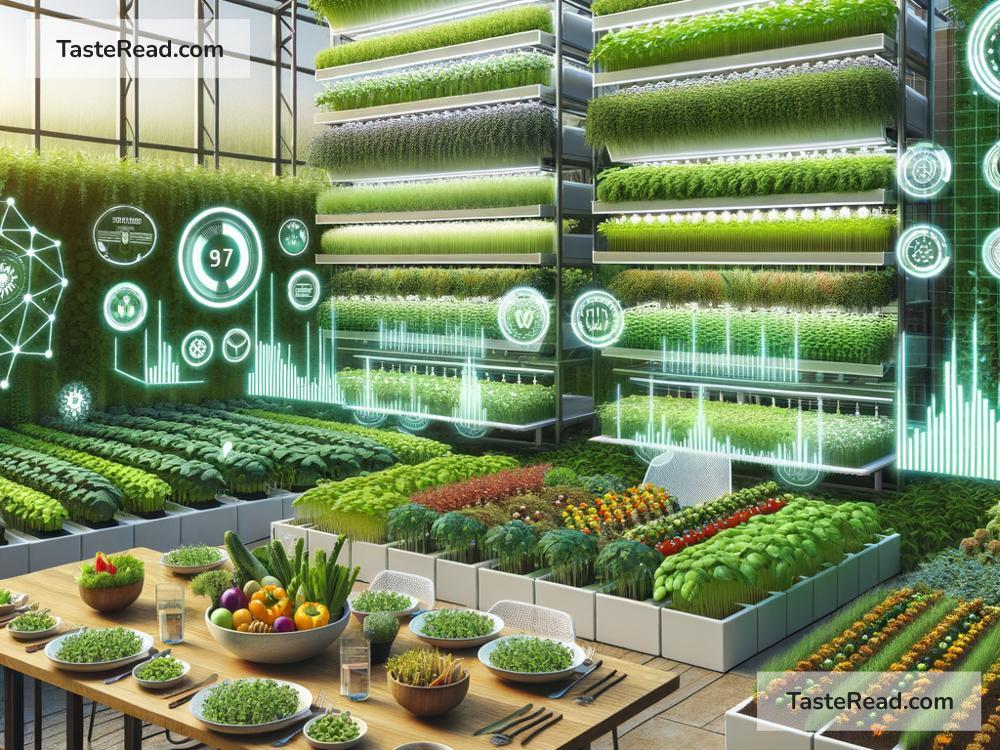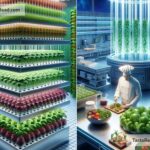The Future of Food: A Journey Toward Holistic Global Innovation
Food is essential to life. It nourishes us, brings people together, and plays a central role in our cultures and traditions. But as the world changes, so do the challenges linked to food. With growing populations, climate change, environmental concerns, and health issues becoming more severe, the global food system is under pressure. To ensure everyone has access to nutritious, sustainable, and affordable food, we need creative and holistic solutions. Let’s explore the future of food and how global innovation could transform our food systems for the better.
The Food Challenges We Face Today
Every day, billions of people rely on farms, factories, stores, and markets to provide the food they need. While modern agriculture and food production have made feeding billions possible, this system faces major challenges:
-
Climate Change: Rising temperatures, irregular weather patterns, and extreme events like droughts or floods are disrupting farming worldwide. Crops fail, soil gets degraded, and farmers struggle to cope.
-
Population Growth: By 2050, the world’s population is expected to surpass 9 billion. We will need to produce 50% more food to feed everyone. But where will this food come from if land and water resources are limited?
-
Health Concerns: Obesity, diabetes, and malnutrition are growing problems globally. While some people have too much processed food, others don’t have enough to eat or lack access to fresh, nutritious options.
-
Food Waste: Astonishingly, about one-third of all food produced globally is wasted. This is not just inefficient but also harmful to the environment.
-
Environmental Impact: Modern agriculture uses a lot of water, land, and energy, and it contributes heavily to greenhouse gas emissions. Can we grow food in a way that protects our planet?
These challenges are interconnected, and solving them requires innovative ideas that take the big picture into account.
The Role of Technology in Transforming Food
The good news is that technology is providing exciting solutions to tackle these problems. The future of food is becoming smarter, more efficient, and more sustainable thanks to innovations like:
-
Vertical Farming: Traditional farming uses large areas of land, but vertical farming allows crops to grow indoors, stacked in layers. Using LED lights and controlled environments, vertical farms can produce food year-round using less water and no pesticides.
-
Lab-Grown Meat: What if we could eat meat without raising animals? Scientists are developing cultivated meat—grown from animal cells in a lab. This approach could use fewer resources and reduce harm to animals and the environment.
-
Precision Agriculture: Farmers are using drones, sensors, and AI to monitor soil, water, and crop health more closely. Precision agriculture helps farmers produce more food with fewer resources, boosting efficiency and reducing waste.
-
Biotech and Climate-Resilient Crops: Scientists are creating crops that can withstand harsh conditions like drought, floods, and pests. These genetically modified plants could help farmers adapt to climate change.
-
Plant-Based Proteins: Plant-based meat alternatives made from peas, soy, or other ingredients are gaining popularity. They use fewer resources compared to traditional meat and can provide tasty, nutritious options for those looking to reduce their meat consumption.
-
Blockchain for Food Tracking: Blockchain technology can improve transparency in food supply chains. By tracking food from farm to table, we can reduce waste, ensure safety, and support fair trade practices.
These innovations are exciting because they help us grow, process, and distribute food in smarter ways. But technology alone is not enough. We also need holistic solutions that consider social, economic, and ethical dimensions.
A Holistic Approach to Food Innovation
Holistic food innovation means looking at the bigger picture and addressing the interconnected challenges. It involves making sure that the solutions work for everyone—farmers, consumers, and the planet. Here are key areas to focus on:
-
Empowering Small Farmers: Smallholder farmers grow much of the world’s food but often lack access to technology and resources. Supporting them with training, tools, and fair prices can make a big difference.
-
Reducing Food Waste: Governments, businesses, and individuals must work together to cut food waste. Whether it’s donating surplus food, improving storage, or educating people about responsible consumption, every little action counts.
-
Promoting Local and Diverse Foods: Encouraging people to eat local, seasonal, and diverse crops can reduce transportation emissions and support local economies.
-
Healthy Eating for All: Making nutritious food affordable and accessible is key. Education about healthy eating habits can also prevent lifestyle diseases and improve overall well-being.
-
Policies for Sustainability: Governments can play a role in promoting sustainable practices, offering incentives for innovation, and protecting farmers against climate risks.
-
Global Collaboration: Food is a global issue, and countries need to work together to share ideas, technologies, and best practices. Partnerships between governments, businesses, and communities can drive faster progress.
The Vision for the Future
The future of food doesn’t just need to address how we grow and eat—it must also embrace values like fairness, sustainability, and health. Imagine a world where:
- Farmers produce food sustainably, without harming the planet.
- Everyone has access to fresh, affordable, and nutritious meals.
- Technology makes farming efficient and minimizes waste.
- Communities celebrate local foods and reduce hunger through cooperation.
Achieving these goals will require bold ideas, strong partnerships, and a commitment to building a better world for both people and the planet.
Conclusion
The future of food is a shared responsibility, and global innovation is the key to success. By combining smart technology, creative thinking, and a holistic approach, we can create a food system that works for everyone. Whether you’re a scientist, farmer, policymaker, or simply someone who cares about the planet, there’s a role for you in this journey.
Together, let’s reimagine how we grow, share, and enjoy food—and shape a healthier, kinder, and more sustainable future for all.


